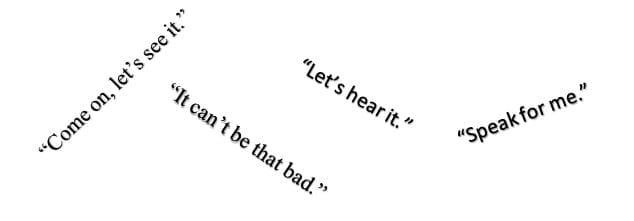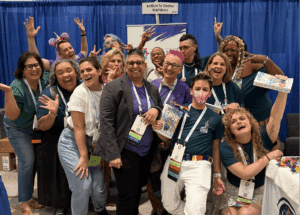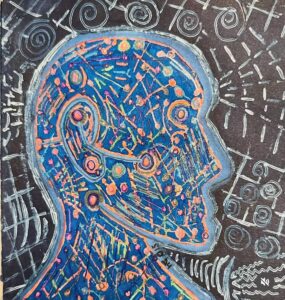We try to fit into these names. Take into account the name lists that float around Facebook. Being able to find our names on Coke bottles. Our names mean something to us. However, what if we don’t identify with our birthname? It becomes this scratching walls that is suffocating.
You see, I have a speech impediment from childhood trauma and it impacts my processing (mental stutters) and my ability to pronounce anything with a “R.” “R’s” can go to Hell for all I care. And of all the “R” sounds that could possibly exist, my birthname has one of the hardest configurations of that godforsaken sound.
There have been many speech therapy sessions spent on pronouncing my name. Many. Over time, I developed a sense of shame and embarrassment. My number one label, my number one identifier, and I can’t say it. When out and about with friends and family, it intuitively became a thing that they’d pronounce my name for me. I don’t know if they perceived my shoulders dropping in, my split-second hesitation, whenever anyone asked, “What’s your name?” My voice would get caught in my throat and I’d shrink into myself. “Just call me, M.”
It got worse when people asked where my accent was from. From as far back as I can remember to when I was 26, every day I was asked where my accent was from. When I was younger, I would tell people I moved around a lot. It wasn’t until I was 23 that the internalized shame branched off into anger and I dreaded every interaction with new people.
“Where’s your accent from?”
“It’s a speech impediment.”
Whenever I dropped that bombshell, people would begin to squirm. How does one come back from that? This moment is the opportunity I take to remove myself from the conversation. I remember a couple of times when people would learn about my speech impediment and the fact I couldn’t say my name, they kept trying to pressure me into speaking. Into saying my name.
This past year, the urge to change my name has only gotten stronger. If anyone read my last blog, know I have a pretty strong intuition. It wasn’t until a recent drive down to an Expressive Arts retreat that I felt comfortable playing with another name. “Tell them to use, Peyton,” bounced around my skull until I shared with road trip buddies to use it for the remainder of the trip together. Thankfully, they took it well and supported it. The entire trip I responded to Peyton like it had always been my name. We also realized it sounds like “painting,” which is something I am passionate about. It felt like coming home.
It dawned on me that my speech impediment has become my identity. Who I’d interact with, how I interact, how I presented myself, all revolved around my speech. I put myself in a corner over time and lost my voice in the process. Picking a name for myself has helped me find my voice I previously locked away. A sort of reclaiming a piece of myself.
So, what’s in a name? For me, everything. My birthname has kept me stuck in a loop of “I’m defective,” because I don’t speak like everybody else. It created this identity of something being wrong with me. A reminder of my trauma history. A reminder of feeling small and powerless. A name is a powerful thing, and everyone should have the opportunity to express who they are, even if it’s a name change. It’s how we introduce ourselves to the world, to people, to ourselves. It can keep us in a box or set us free.
So, hello, my name is Peyton.





